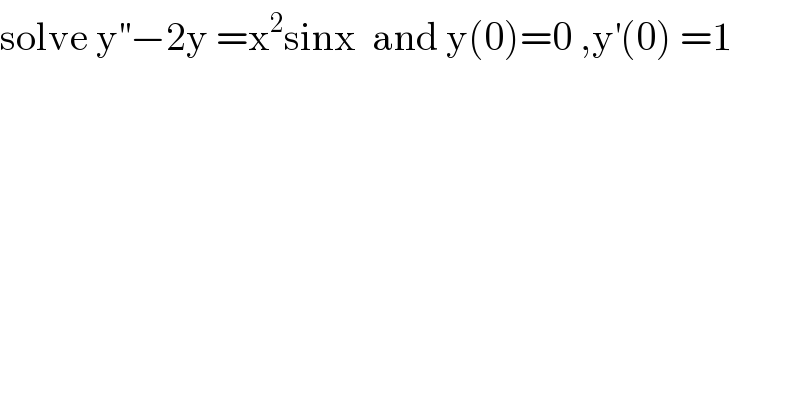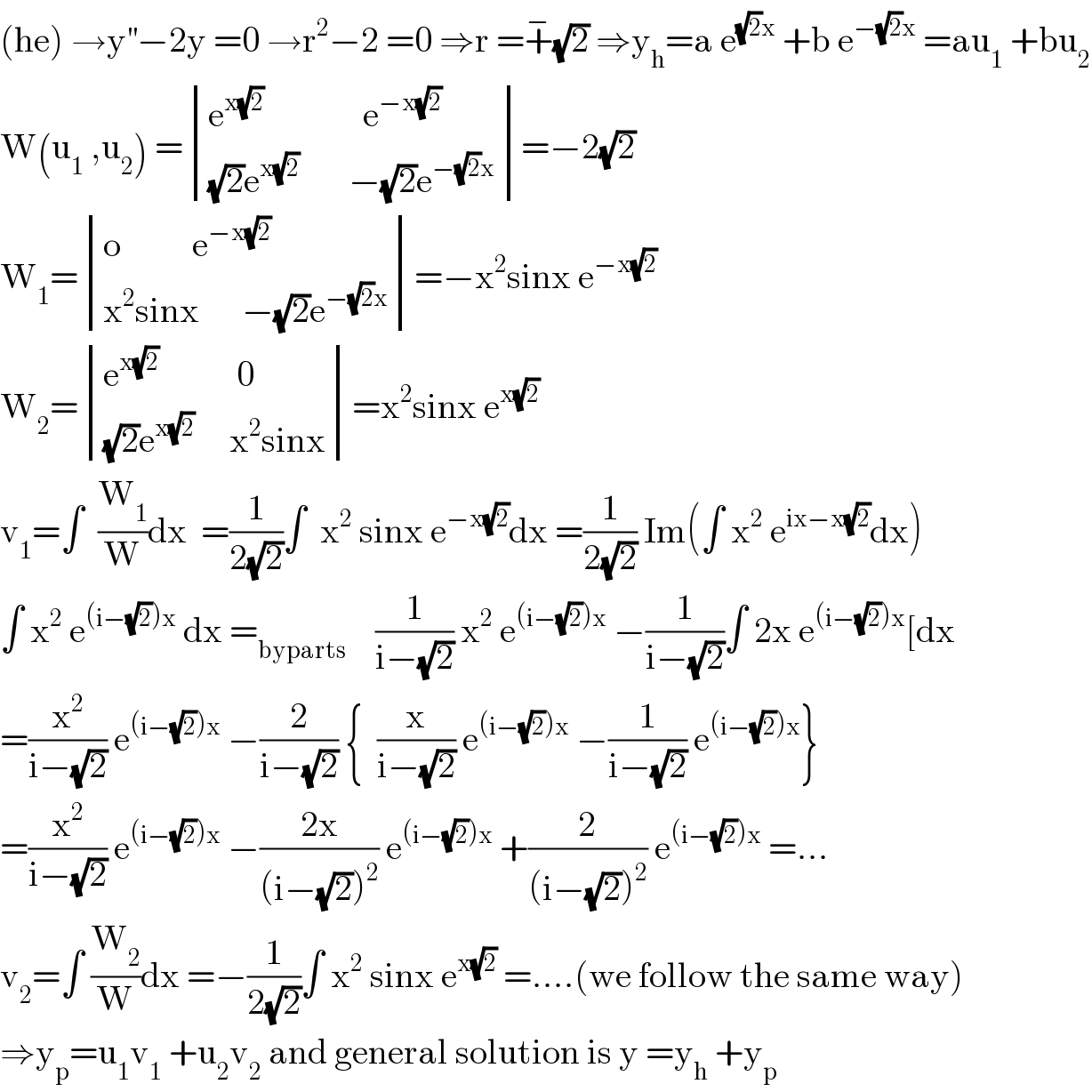
Question and Answers Forum
Previous in Relation and Functions Next in Relation and Functions
Question Number 96772 by abdomathmax last updated on 04/Jun/20

Answered by mathmax by abdo last updated on 04/Jun/20

Answered by mathmax by abdo last updated on 05/Jun/20
![let use Laplace transform (e) ⇒L(y^((2)) )−2L(y) =L(x^2 sinx) ⇒ x^2 L(y)−y(0)−y^′ (0)−2L(y)=L(x^2 sinx) ⇒ (x^2 −2)L(y)=1+L(x^2 sinx) we have L(x^2 sinx) =∫_0 ^∞ t^2 sint e^(−xt) dt =Im(∫_0 ^∞ t^2 e^(it−xt) dt) but ∫_0 ^∞ t^2 e^((i−x)t) dt =_(by parts) [(t^2 /(i−x))e^((i−x)t) ]_0 ^∞ −∫_0 ^∞ ((2t)/(i−x)) e^((i−x)t) dt =−(2/(i−x)) ∫_0 ^∞ t e^((i−x)t) dt =(2/(x−i)){ [(t/(i−x)) e^((i−x)t) ]_0 ^∞ −∫_0 ^∞ (1/(i−x))e^((i−x)t) dt} =(2/((x−i)^2 )) ×[(1/(i−x)) e^((i−x)t) ]_0 ^∞ = (2/((x−i)^3 )) =((2(x+i)^3 )/((x^2 +1)^3 )) =((2(x^3 +3x^2 i −3x−i))/((x^2 +1)^3 )) =((2x^3 +6x^2 i−6x −2i)/((x^2 +1)^3 )) ⇒L(x^2 sinx) =((6x^2 −2)/((x^2 +1)^3 )) (e)⇒(x^2 −2)L(y) =1+((6x^2 −2)/((x^2 +1)^3 )) ⇒L(y) =(1/(x^2 −2)) +((6x^2 −2)/((x^2 −2)(x^2 +1)^3 )) ⇒ y(x) =L^(−1) ((1/(x^2 −2))) +L^(−1) (((6x^2 −2)/((x^2 −2)(x^2 +1)^3 ))) (1/(x^2 −2)) =(1/(2(√2)))((1/(x−(√2)))−(1/(x+(√2)))) ⇒L^(−1) ((1/(x^2 −2))) =(1/(2(√2)))(e^(x(√2)) −e^(−x(√2)) ) let decompose F(x) =((6x^2 −2)/((x^2 −2)(x^2 +1)^3 )) F(x) =(a/(x−(√2))) +(b/(x+(√2))) +((a_1 x +b_1 )/(x^2 +1)) +((a_2 x +b_2 )/((x^2 +1)^2 )) +((a_3 x +b_3 )/((x^2 +1)^3 )) ...be continued...](Q96810.png)
Commented by mathmax by abdo last updated on 05/Jun/20

